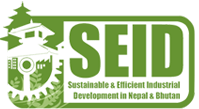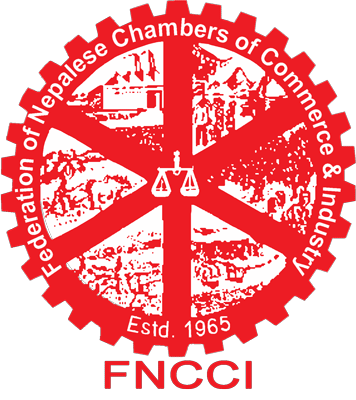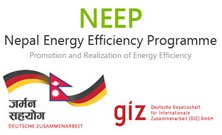Scenario
The new consitution of Nepal underlines the role of reliable and affordable energy and its sustainable use for the fulfillment of basic needs and the economic growth of the country. However, despite continuous endeavors Nepal’s energy supply and demand balance, particularly electricity still remains in deficit. According to international energy statistics and by regional comparison Nepal shows a high energy intensity, indicating a generally inefficient use of energy in the country. The Government of Nepal has recognised the problem and as part of its Nationally Determined Contributions (NDCs) committed to adopt a low-carbon development pathway. Nepal intends to develop cross-sectoral approaches for an economy based on low emissions. Hereby, energy efficiency is particularly important for the Government of Nepal. However, so far energy efficiency is not yet recognized as an essential component of energy supply in Nepal.
Program Description
The Nepal Energy Efficiency Programme (NEEP) has been promoting energy efficiency in Nepal since 2010. NEEP is implemented by the Ministry of Energy, Water Resource and Irrigation (MoEWRI), the Government of Nepal with technical assistance provided by the Deutsche Gesellschaft für Internationale Zusammenarbeit (GIZ) on behalf of the German Federal Ministry for Economic Cooperation and Development (BMZ). Having successfully improved the framework conditions for the planning and implemention of energy efficiency measures, NEEP continues with the institutional and regulatory mainstreaming of energy efficiency in national energy policy in order to establish energy efficiency as a recognized energy resource in Nepal. The program provides direct advice and expertise to the government for the establishment of policy frameworks for implementing energy efficiency and improve energy conservation measures, helps to strengthen the capabilities of Nepal Electricity Auhtority (NEA) in managing power supply and demand, assists with the establishment of elements of market development for energy efficiency services and efficient products and supports in the initiation process for integrating energy efficiency into university education and vocational training.
1. Policy
The component "Policy" aims at further improving the political framework conditions for implementing measures for energy efficiency and saving. Following the adoption of the NEEP supported biomass energy strategy and the policy decision for promoting sugarcane cogeneration, the Government of Nepal recently developed and adopted the National Energy Efficiency Strategy 2019. Recently, the Alternative Energy Promotion Centre (AEPC) has been designated as the first energy efficiency entity of the Government of Nepal. AEPC is tasked to promote energy efficiency in Nepal and coordinate between national institutions and stakeholders involved in the field of energy efficiency. As the next steps in institutionalizing energy efficiency in the country, the Nepalese government is preparing a National Energy Efficiency Action Plan (NEEAP) and an energy efficiency and conservation bill.
2. Support to the Nepal Electricity Authority (NEA)
This component aims at enabling NEA to develop solutions to the challenges of supply and demand management in the distribution network. On the demand side, NEA is supported in setting up a digital information system to analyze the consumption patterns of its customers, in developing innovative concepts of demand management, and on customer relations towards their purchase of energy-saving electrical appliances and their efficient use. On the electricity supply side, NEA is advised on the introduction of intelligent measurement system in the supply infrastructure (substation, supply lines, transformers) and supported in setting up a digital monitoring system to monitor and mitigate the technical losses of the utility distribution infrastructure.
3. Energy Efficiency Market Development
The component aims at establishing necessary elements of market development for energy efficiency services and energy-efficient products to improve the required economic and financial conditions for strengthening energy efficiency and energy conservation in Nepal. In collaboration with Energy Efficiency Centre of Federation of Nepalese Chamber of Commerce and Industries (FNCCI) and Town Development Fund (TDF), energy consumers, businesses, communities and cities are advised on the introduction of standardized operational energy management plans. Furthermore, the current range of services offered by the partners (energy audits, energy management consulting) will be extended to provide investment-related advice for the implementation of energy efficiency measures. On the product side, the project advises on establishing digital customer information platforms to promote energy efficient products. Moreover, economically relevant players on an individual, organizational and societal level will be strengthened through awareness raising campaigns, advice, training, and peer learning in networks for the promotion of energy efficiency.
4. Energy Efficiency in Higher Education / Vocational Training
This component aims at initiating the integration of energy efficiency in higher education and vocational training. The development of well-trained professionals and workers will result in an increased and optimized use of modern, energy-efficient products in enterprises and companies and in a better utilization of the existing employment potential in energy-related professions. In vocational training, the Council for Technical Education and Vocational Training (CTEVT) is developing a course on energy efficiency which will be piloted in selected CTEVT institutes, and then rolled-out as a certified course in a second step. The integration of energy efficiency into existing courses will also be examined through a review of existing curricula. The National Skill Testing Board (NSTB) is supported in developing a national occupational skill standard on “Energy Auditor” for assuring the quality of nationally certified energy auditors for the local labor market. Similarly, the Institute of Engineering (IoE) of Tribhuvan University has begun the development of a short course on energy efficiency in buildings and industries for engineering professionals. The Center for Energy Studies (CES), IoE is supported in establishing an elective module on energy efficiency for one of its Bachelor’s degrees in Engineering and integrating energy efficiency in one of its Master degrees in Engineering courses. An exchange platform is being established to promote dialogue and collaboration between public, private and academia sectors on the topic of energy efficiency.
Sustainable and Efficient Industrial Development (SEID)
 The Sustainable and Efficient Industrial Development (SEID) project is an initiative under the Switch Asia Program of the European Union which seeks to shift consumption and production activities in Asia to a more sustainable manner. The project focuses on implementing “Resource Efficiency and Responsible Production” interventions in the tourism industry and agro-based industries, which significantly contribute to the economic development of Nepal, yet also to carbon emissions and resource exploitation.
The Sustainable and Efficient Industrial Development (SEID) project is an initiative under the Switch Asia Program of the European Union which seeks to shift consumption and production activities in Asia to a more sustainable manner. The project focuses on implementing “Resource Efficiency and Responsible Production” interventions in the tourism industry and agro-based industries, which significantly contribute to the economic development of Nepal, yet also to carbon emissions and resource exploitation.
Tourism and Agro-based Industries are an important growth sector in both Nepal and Bhutan and contributes significantly to their GDP, employment generation, and foreign exchange earnings. However the rise in tourists’ arrivals has put extra pressure on developing additional infrastructure and has contributed directly to environmental degradation, waste generation and environmental pollution. Competitiveness of Agro based Industries are fast eroding as a result of outdated technology, lack of optimized process and unsustainable sourcing. In Nepal demand for electricity increases by 10% every year whereas production remains constant and the 12 hours daily power cuts are a reality. While both Bhutan and Nepal have ample supply of water, the water tables in many famous tourist destinations and industrial zones are stressed. These are big challenges that need to be addressed. The Project SEID is designed to directly address several issues faced by both sectors. Its main objective is to transfer best practices, technology and proven approaches on Sustainable Consumption and Production (SCP).
Project Brief
Title: Sustainable & Efficient Industrial Development (SEID) – Bhutan and Nepal
Project Duration: 40 Months (2012-2015)
Project Location: Nepal & Bhutan
Target Sector: Tourism and Agro-based Industries
Primary Target Groups:
- Small and Medium Enterprises (SMEs) from the target sector;
- Local experts from private consulting and training companies, industry / business associations and academe, freelance consultants;
- Public institutions, government authorities, industrial park management authorities and policymakers;
- Other Micro, Small and Medium Enterprises (MSMEs) in the target region.
Objectives
The project shall contribute towards sustainable development of Nepal’s and Bhutan’s economy with a clear focus on the tourism and agro-based industries.
The main objective is:
- To reduce costs and pollution; improve health and safety performance in the target sector.
- To enhance the capacity of national anchor associations and service providers to collaborate and promote sustainable practices to their supply chain and members, providing technical support and input to SMEs to improve the overall resource efficiency of their production processes from the life cycle perspective
- To build strategic partnerships with on-going initiatives in the target sector, providing access to existing knowledge, Information Education Campaign material to address needs of SMEs.
- To facilitate dialoguing and networking amongst key stakeholders including government, financial institutions, industry associations, academia aimed at creating and enabling environment which propagates and incentivizes adoption of sustainable industrial practices.
Project funded by:
- European Union
- Austrian Development Cooperation (ADC)
Project Implemented by
- GrAT
- Asia Society for Social Improvement and Sustainable Transformation (ASSIST)
- Federation of Nepalese Chambers of Commerce and Industry (FNCCI)
- Butan Chamber of Commerce and Industry (BCCI)
- Deutsche GesellschaftfürInternationaleZusammenarbeit (GIZ)
- Austria Recycling (AREC)
- Stenum Asia
Project Status
Completed in 2015




